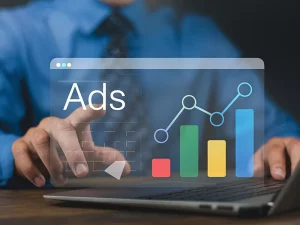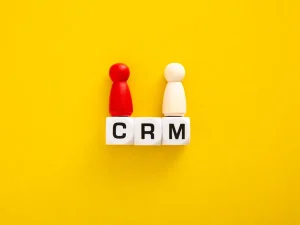Unlocking the Power of Funnel Marketing: A Beginner’s Guide
Are you ready to take your digital marketing efforts to the next level? Enter the world of funnel marketing – a dynamic strategy that can revolutionize how you attract, engage, and convert your target audience. If you’re new to this concept, fear not! In this beginner’s guide, we will unravel the power of funnels in driving successful marketing campaigns. Get ready to unlock the secrets to transform your online presence and boost your business growth!
What is Funnel Marketing?
In digital marketing, a sales funnel is like a roadmap that guides potential customers through the buying process. Funnel marketing is all about strategically leading your audience from initial awareness to making a purchase.
Picture a funnel – wide at the top where you attract prospects, then narrow down as you engage and nurture them until they convert into loyal customers. Each funnel stage serves a specific purpose: awareness, interest, decision-making, and action.
Businesses can tailor their messaging and tactics by understanding how customers move through these stages. This personalized approach helps increase conversions and maximize ROI on marketing efforts.
With funnel marketing, it’s not just about making one-time sales; it’s about building relationships and creating brand advocates who keep coming back for more.
Understanding the Stages of a Sales Funnel
Sales funnels are crucial in digital marketing strategies, guiding potential customers from awareness to conversion. At the top of the funnel, prospects become aware of your brand, products, or services. This stage focuses on attracting leads by creating engaging content and building brand visibility.
Moving down the funnel, we reach the middle stage, where leads start showing interest in what you offer. Here, nurturing relationships with personalized communication and targeted campaigns is vital in guiding them closer to purchasing.
The bottom of the funnel is where conversions happen. At this stage, leads have been educated about your offerings and are ready to commit. It’s essential to provide clear calls-to-action and seamless purchasing processes to ensure a smooth transition from lead to customer.
Benefits of Using Funnel Marketing
In the vast digital marketing landscape, utilizing funnel marketing can benefit businesses. One key advantage is the ability to guide potential customers through a structured journey, increasing the likelihood of conversion at each stage.
By understanding where prospects are in the sales process, companies can tailor their messaging and offerings accordingly, leading to higher engagement and improved lead quality. Funnel marketing helps optimize resources by focusing on those most likely to convert rather than casting a broad net.
Moreover, funnels provide valuable insights into consumer behavior and preferences, allowing for data-driven decision-making. This enables businesses to refine their strategies continually based on real-time feedback and analytics.
Incorporating funnel marketing into your digital strategy can lead to enhanced customer relationships, increased ROI, and sustainable growth in today’s competitive online marketplace.
How to Create an Effective Funnel Marketing Strategy
An effective funnel marketing strategy is crucial for driving conversions and maximizing ROI in the digital landscape. The first step is clearly defining your target audience and understanding their pain points, needs, and preferences. This will help tailor your messaging and content to resonate with them at each stage of the funnel.
Next, map out the different stages of your sales funnel—awareness, interest, decision, and action—to guide prospects seamlessly through the buyer’s journey. Create engaging content such as blogs, videos, webinars, or case studies that educate and move leads closer to making a purchase.
Utilize email marketing automation tools like Mailchimp or ActiveCampaign to nurture leads with personalized communication based on their interactions with your brand. Data is regularly analyzed using tools like Google Analytics or HubSpot to track key metrics such as conversion rates and customer acquisition costs.
Optimize your funnel strategy continuously by A/B testing elements like landing pages, calls-to-action buttons, or email subject lines for improved performance. Stay agile in adapting tactics based on feedback and data insights for ongoing success in driving conversions throughout the sales cycle.
Tools and Resources for Implementing Funnel Marketing
Having the right tools and resources can make all the difference in implementing a successful funnel marketing strategy.
One essential tool is a Customer Relationship Management (CRM) system like HubSpot or Salesforce, which helps track leads and customer interactions throughout the sales process.
Email marketing platforms such as Mailchimp or Constant Contact are invaluable for creating targeted email campaigns that nurture leads through each stage of the funnel.
Analytics tools like Google Analytics provide valuable insights into website traffic, user behavior, and conversion rates, helping you optimize your funnels for maximum effectiveness.
Social media management tools like Hootsuite or Buffer allow you to schedule posts, engage with followers, and drive traffic to your funnel landing pages.
Don’t forget about automation tools like Zapier or ActiveCampaign that streamline repetitive tasks and help personalize communication with leads at scale.
With these tools in your arsenal, you’ll be well-equipped to create and execute a powerful funnel marketing strategy that drives conversions and grows your business.
Common Mistakes to Avoid in Funnel Marketing
One common mistake to avoid in funnel marketing is paying attention to the importance of targeting the right audience. Understanding your ideal customer’s needs and preferences at each stage of the funnel is crucial to tailor your strategies effectively.
Another pitfall is overlooking the significance of tracking and analyzing data. With proper analytics, it’s easier to gauge your funnels’ performance and make informed optimization decisions.
Furthermore, failing to create compelling and relevant content can hinder your funnel marketing efforts. Engaging content is pivotal in attracting and retaining potential customers throughout their journey.
Additionally, not nurturing leads properly can result in lost opportunities. Building relationships through personalized communication is essential for guiding prospects toward conversion.
Ignoring A/B testing and experimentation can limit your funnel’s growth potential. Testing different elements allows you to optimize conversions based on real-time results rather than assumptions.
Conclusion
Funnel marketing is a powerful strategy for businesses looking to optimize their digital marketing efforts. Companies can effectively guide potential customers through the buying process by understanding the stages of a sales funnel and implementing targeted strategies at each phase.
The benefits of using funnel marketing include increased lead generation, improved conversion rates, and enhanced customer retention. With the right tools and resources, businesses can create an effective funnel marketing strategy that drives results.
However, it is essential to avoid common mistakes such as neglecting follow-up with leads or failing to analyze data accurately. By staying vigilant and continually refining your approach, you can unlock the full power of funnel marketing for your business.
Harnessing funnels’ potential in digital marketing can be a game-changer for any company willing to invest time and effort into crafting a tailored strategy. So why wait? Start implementing funnel marketing today and watch your business thrive in the digital landscape!






